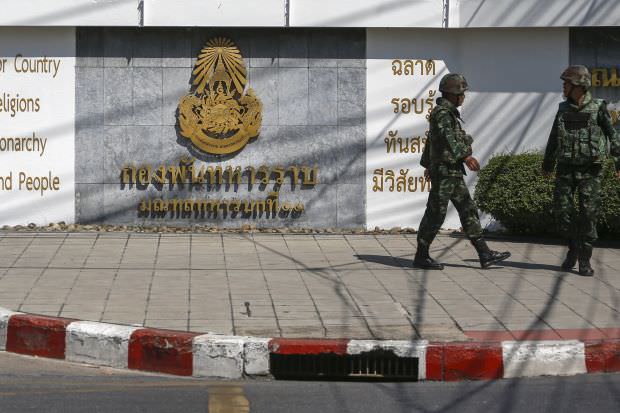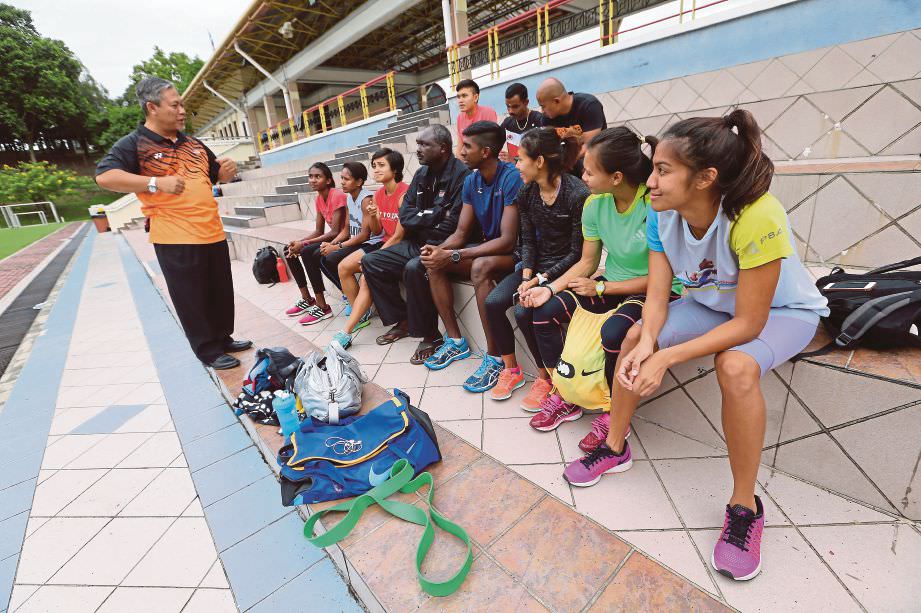BANGKOK (Reuters) – When Bangkok lawyer Winyat Chatmontree was allowed to meet his client in detention at a Bangkok army base, Pratin Chankate shuffled in blindfolded and shackled by military guards.
At their second meeting Pratin, a former police officer charged with plotting to attack senior government officials who was officially in civilian custody, was taken away after five minutes by soldiers, Winyat said.
Pratin is detained in a new facility established by the Thai junta to hold people deemed threats to national security, in what lawyers and rights groups say is an unprecedented expansion of the military’s control over the criminal justice system.
“The military is running most of the process, from interrogation to building cases,” said Winyat. “Then they hand it over to police to continue what they started.”
ADVERTISEMENT
The authorities say the facility, hidden behind the low walls and trimmed hedges of the 11th Army Circle base near Bangkok’s old city, is necessary for the efficient investigation of major threats to the kingdom.
The government and army declined to comment on the facility, but the corrections department hosted a guided visit to the site for journalists in early December.
Witthaya Suriyawong, the head of the department, rejected accusations that the jail is a military facility in civilian garb. While soldiers act as guards, the jail itself is administered by eight corrections staff, he said.
“We are the prison that serves the military court,” said Witthaya. “In principle, police do the investigation.”
As reporters entered the bare cells, detainees sat cross-legged on the floor, facing silently away from visitors.
The prison was needed to allow investigators easier and longer access to detainees, Witthaya said.
JUNTA RULE
Even under martial law, imposed after the army seized power in May 2014 and lifted in April, lawyers say the military had mostly respected the legal requirement to either hand suspects over to the civilian authorities or release them after seven days.
But the new jail, established within the military base under a decree issued on Sept. 11, is run by the civilian Department of Corrections. That means detainees can be held there for up to three months.
Rights groups say this is little more than a legal fig leaf for a facility aimed at keeping suspects under army control as they are railroaded through a system of military courts that have been used to try some civilians since the coup.
“Legally, this place is under the jurisdiction of the corrections department, but in practice it is administered by the military,” Sunai Phasuk, a researcher at Human Rights Watch, told Reuters.
Lawyers for detainees say they are routinely denied access to their clients and, in some cases, have themselves been subject to intimidation.
“It’s fair to call this facility a ‘black site’ of the Thai military,” Sunai said, referring to the term for prisons used in the past by the United States to hold terrorism suspects outside the criminal justice system.
“SERVING THE MILITARY COURT”
Witthaya confirmed that detainees were blindfolded and shackled when moved around the base – a measure he said was necessary to prevent escapes.
Shackling is sometimes used in the Thai criminal justice system when prisoners are being moved between locations, such as for court appearances, but lawyer Winyat said it was rare within jails and that blindfolding was an extraordinary measure.
So far 10 suspects have been held at the jail, including two Chinese Uighurs charged over an August bombing in Bangkok that killed 20 people.
Also held are six Thais accused in high-profile cases of insulting the monarchy, corruption, and plotting to attack junta officials at a Dec. 11 cycling event. Two more have died in custody.
Prakrom Warunprapa, a police major charged with falsely claiming royal connections to raise money, was found hanging in his cell on Oct. 23, according to authorities.
Suriyan Sujaritpalawong, a celebrity fortuneteller known as “Soothsayer Yong” arrested over the same case, died two weeks later of a blood infection, officials said.
“IT’S NOT SAFE”
Lawyers for five detainees told Reuters that soldiers appeared to run the site and were heavily involved in interrogations.
Winyat said both Pratin and another client in the same case, Nattapol Nawanle, were interrogated at other military facilities before being transferred to the jail. Pratin says he was beaten, he said.
Witthaya said corrections department staff had examined detainees and found no signs of mistreatment. Lawyers said no detainees had complained of beatings once within the jail.
But Benjarat Meetian, a lawyer who represents three detainees held in the jail, said she was followed by police from the base after her first visit on Nov. 30, and was later kept at a police office for four hours, where she was interrogated.
Police have filed five charges against Benjarat, including defamation, after she refused to withdraw a complaint she made over charges against another of her clients.
“I can’t (go back to the base). It’s not safe for me,” she said.
Currently, the jail is expanding. Reuters journalists saw the construction of six new cells, in addition to the three already in use, during the press visit the base.
The facility would be open “as long as the prison is needed”, corrections chief Witthaya said.
(Additional Reporting by Panarat Thepgumpanat and Amy Sawitta Lefevre; Editing by Simon Webb and Alex Richardson)-thestar







